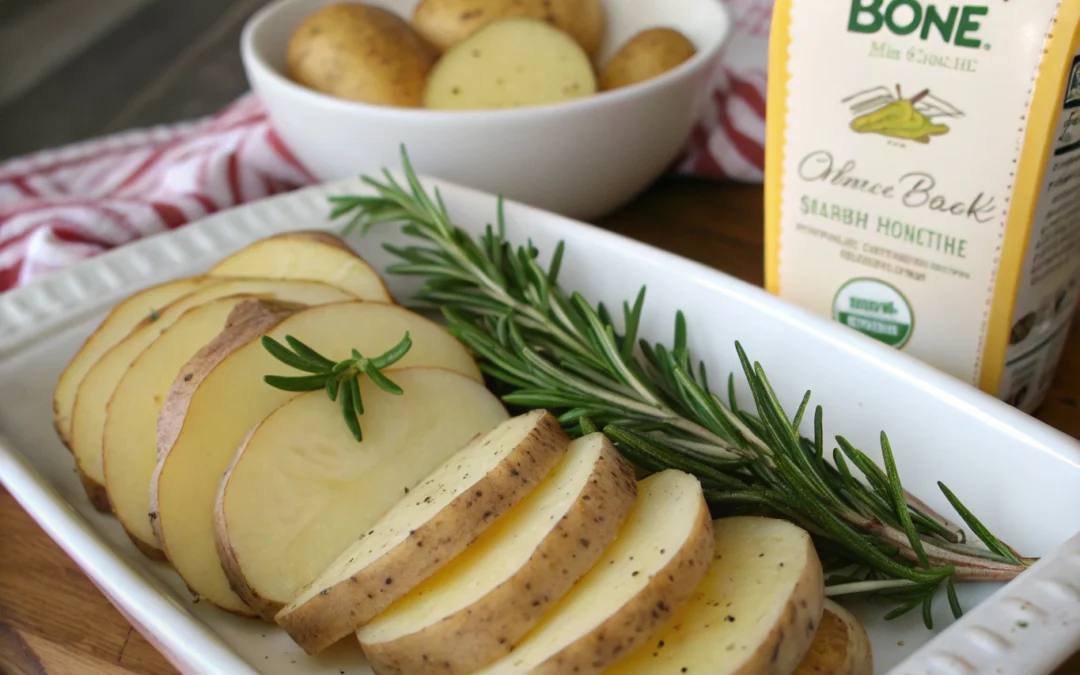Are Potatoes Low FODMAP? What You Need to Know
For those managing digestive health, understanding which foods are safe can feel like navigating a complex maze. Potatoes, a staple in many diets, often come under scrutiny for their FODMAP content. Curious whether they fit into a low FODMAP plan? Check out are potatoes low FODMAP to get detailed insights into their suitability for sensitive stomachs.
What Are FODMAPs and Why Do They Matter?
FODMAPs are fermentable oligosaccharides, disaccharides, monosaccharides, and polyols. These short-chain carbohydrates can be poorly absorbed in the small intestine, leading to symptoms like bloating, gas, and abdominal pain in individuals with irritable bowel syndrome (IBS) or other digestive sensitivities. Managing intake of high FODMAP foods is a common strategy for symptom relief, but not all foods labeled “bad” are equally problematic.
Potatoes and FODMAP Content
Are Potatoes Low FODMAP?
According to recent research and expert guidance, plain potatoes are generally considered low FODMAP in small to moderate servings. Specifically, a serving size of about 1 cup (roughly 150 grams) of cooked potatoes is typically tolerated by most people following a low FODMAP diet. However, larger quantities or certain preparation methods can influence FODMAP levels.
Factors That Influence Potatoes’ FODMAP Levels
- Type of Potato: Both white and sweet potatoes are low FODMAP when prepared correctly. Sweet potatoes tend to have slightly higher FODMAP content, especially in larger servings.
- Preparation Method: Baking, boiling, or steaming plain potatoes keeps them low FODMAP. Adding ingredients like garlic or onion, which are high FODMAP, can quickly turn a dish into a trigger.
- Serving Size: Larger portions may increase FODMAP content, so sticking to recommended serving sizes is advisable.
When Should You Be Cautious?
While plain potatoes are generally safe in moderation, some individuals may react differently. If you notice symptoms after consuming potatoes—especially in larger quantities—it may be worth consulting with a healthcare professional or dietitian. Also, processed potato products like chips, fries, or mashed potatoes with added ingredients can contain high FODMAP components or other additives that may cause issues.
Practical Tips for Incorporating Potatoes
Choose Simple Preparations
Opt for boiled, baked, or steamed potatoes without high FODMAP ingredients. Keeping dishes simple reduces the risk of unintended FODMAP exposure.
Mind Your Serving Sizes
Stick to servings of about 1 cup and observe how your body responds. If symptoms persist, consider reducing portion sizes further or eliminating potatoes temporarily.
Read Labels and Ask About Preparation
When dining out or purchasing processed foods, inquire about ingredients and preparation methods to ensure they align with your FODMAP management plan.
Actionable Recommendations for Consumers
- Start with small portions of plain cooked potatoes and gradually increase to assess tolerance.
- Pair potatoes with low FODMAP vegetables and proteins to create balanced, digestive-friendly meals.
- Experiment with different potato varieties and cooking methods to find what works best for your digestion.
- If unsure about your response or managing symptoms, consult a dietitian familiar with the low FODMAP diet for personalized guidance.
Checkout ProductScope AI’s Studio (and get 200 free studio credits)

